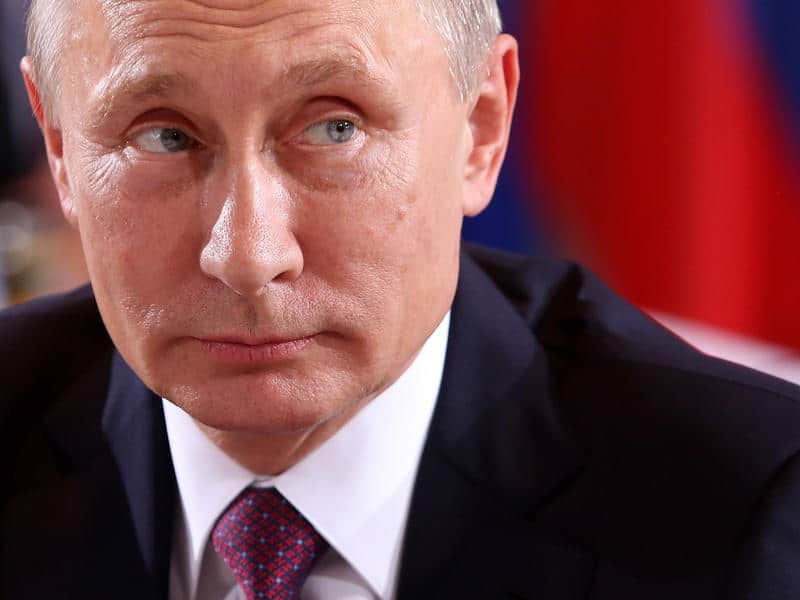Kremlin appears to give up on change in US foreign policy under Donald Trump
Developments on Day 192 of the Trump Administration:
Putin Responds to US Sanctions with Expulsions
Russian President Vladimir Putin responds to new US sanctions, adopted by Congress last week, with the announcement that the American diplomatic mission in Russia must reduce its staff by 755 personnel.
Putin said in an interview on State-run Rossiya 1 TV of the reduction, to take effect by September 1:
We waited for quite a long time that, perhaps, something will change for the better, we held out hope that the situation would somehow change. But, judging by everything, if it changes, it will not be soon….
I decided that it is time for us to show that we will not leave anything unanswered
Putin said of the biggest move since Soviet expulsions of US staff in 1986, “Over 1,000 employees — diplomats and technical workers — worked and continue to work today in Russia; 755 will have to stop this activity. That is biting.”
After the cut, about 455 US staff will remain in Russia.
The step appeared to be an acknowledgement by Putin that his hopes had ended for a change in US foreign policy under Donald Trump, whom the Kremlin supported in the 2016 Presidential election.
Even before the Trump Administration took office, the future National Security Advisor, Michael Flynn, conferred with Russian Ambassador Sergei Kislyak on how to limit the impact of sanctions imposed by President Obama over Russia’s election interference.
After Trump’s inauguration, White House officials put out feelers about an easing of the US restriction, imposed in 2012 over human rights issues and bolstered in 2014 after Russia’s annexation of Crimea and military intervention in eastern Ukraine. After Trump’s friendly meetings with Putin on July 7 at the G20 summit, there was talk of the reopening of two Russian diplomatic compounds closed by Obama at the end of December.
But this evaporated as Congress moved towards new sanctions. The Senate adopted the measures last month and, overcoming the White House’s resistance, the House of Representatives passed a package last week that also includes Iran and North Korea. Facing near-unanimous votes in both chambers for the bill, Trump had no choice but to sign it.
Citing areas such as a joint fight against terrorism, obligations to nuclear arms control, and space projects, Putin tried to issue a warning:
Moscow has a lot to say and there is a number of spheres of cooperation that we could potentially cut and it would be sensitive for the US side. But I think we shouldn’t do it. It would harm development of international relations. I hope it won’t get to that point. As of today, I’m against it.
From the Fire of Healthcare Into the Frying Pan of the Budget
Reeling from the failure to pass a replacement for ObamaCare, Republican legislators face the challenge of passing a Federal budget before a possible Government shutdown in October.
“September is going to be a very difficult month,” said Mark Meadows of North Carolina, chairman of the conservative House Freedom Caucus, on Friday. “I mean obviously all of this is coming into play right away, all the fiscal issues and deadlines are going to make it extremely difficult to get everything done in a piece-by-piece basis.”
When the House of Representatives returns in September from a summer recess, it will have four weeks before supplementary funding — adopted at the end of March to keep the government in operation — expires on October 1.
Congress could adopt a short-term continuing resolution to maintain current funding levels, but it then faces a mid-October deadline on the debt ceiling. Conservatives have objected to raising the ceiling without a link to spending cut or policy riders.
The House has adopted four of twelve spending bills, but the overall budget resolution is stalled over disagreements on tax structures and cuts to mandatory spending in areas such as welfare and education.

